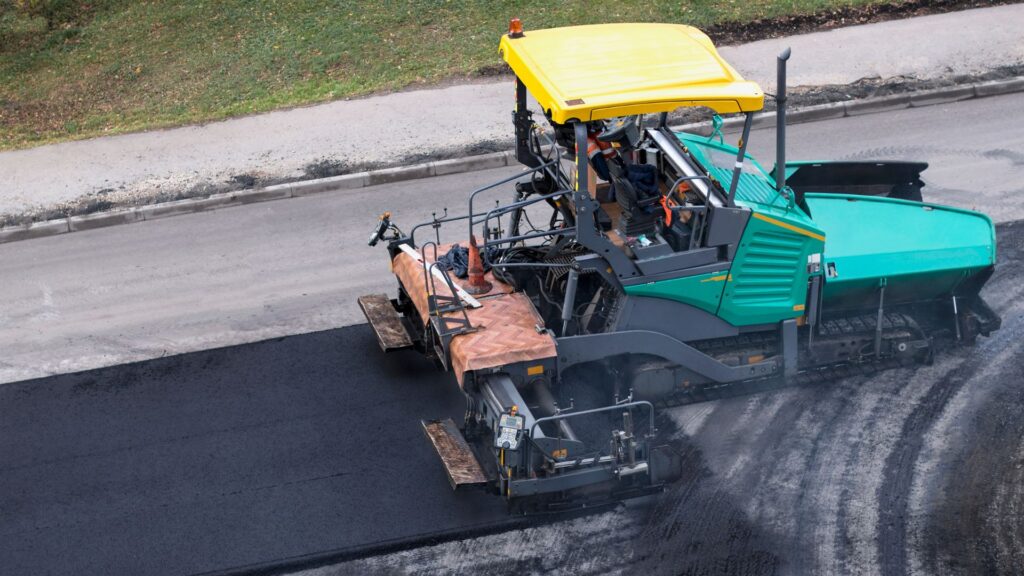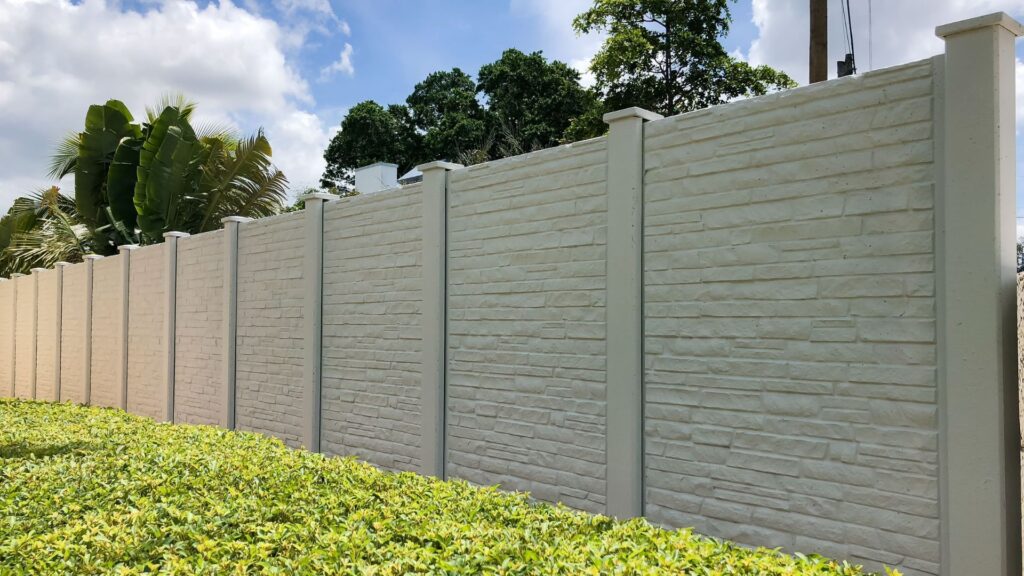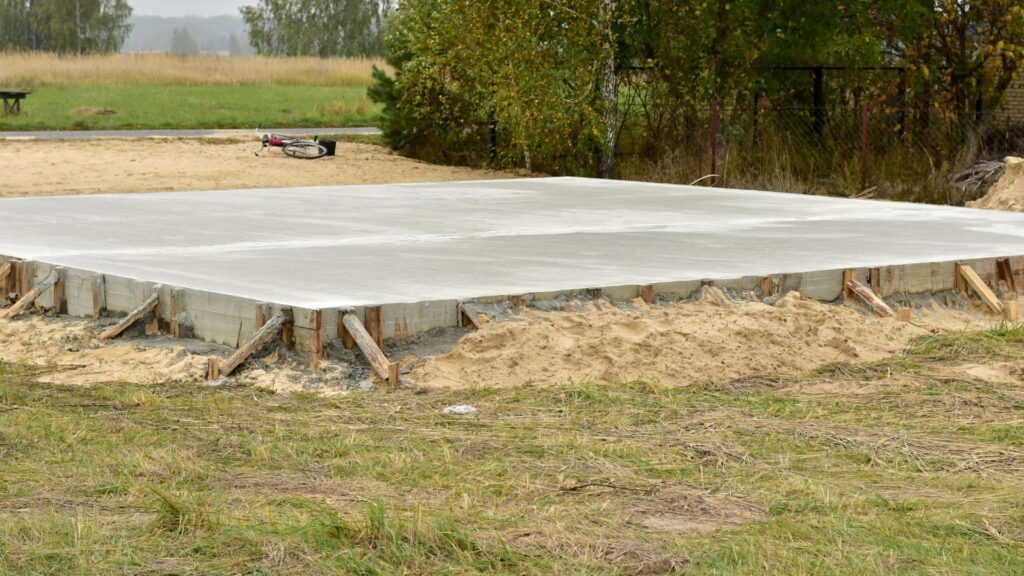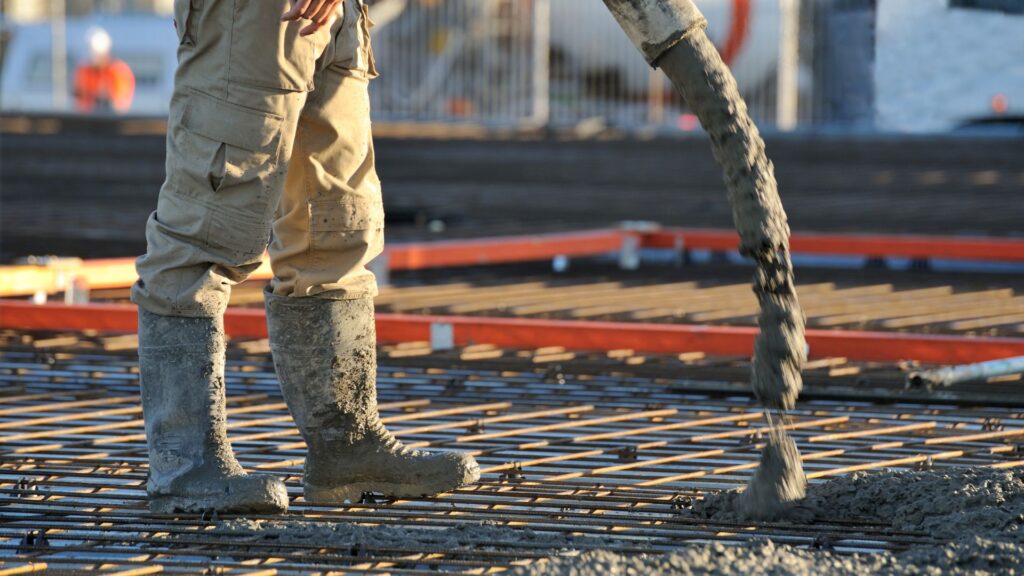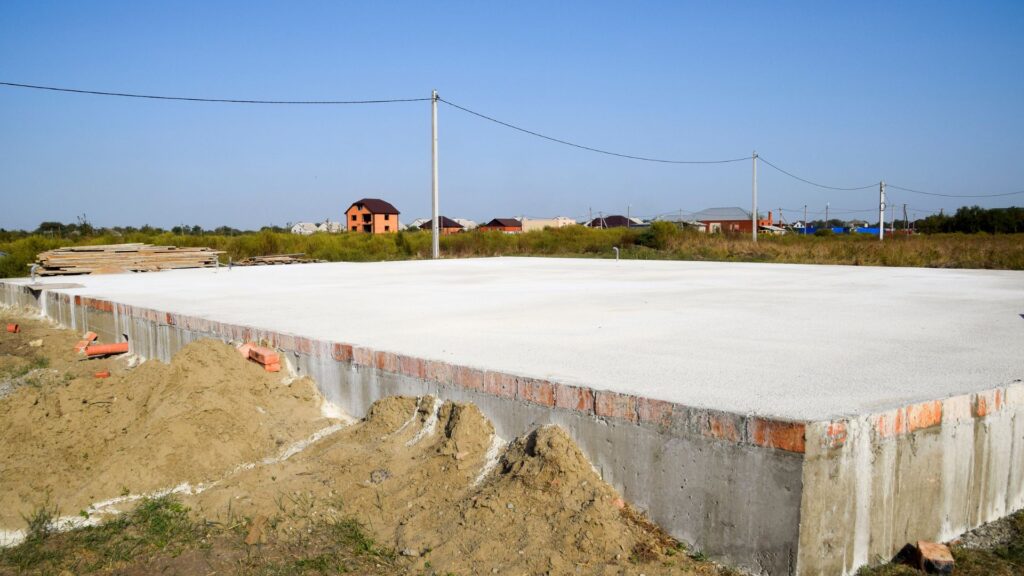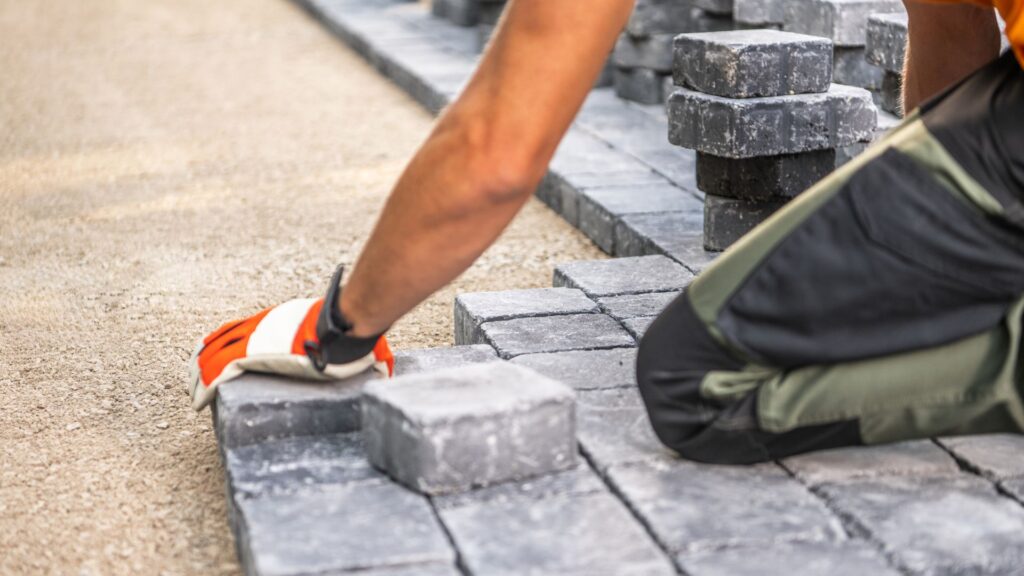Welcome to our complete guide on asphalt cost per square metre in NZ! Whether you’re planning to pave a new driveway, upgrade a parking lot, or resurface an existing road, understanding the costs involved is crucial for budgeting and making informed decisions. Asphalt remains a popular choice for homeowners and businesses in New Zealand due to its durability, cost-effectiveness, and weather resistance, but pricing can vary based on factors like location, project size, and material quality. In this article, we’ll break down the current asphalt costs per square metre, what influences pricing, and how to get the best value for your money—helping you make the right choice for your paving project.
The cost of asphalt per square metre in New Zealand typically ranges between $30 and $100, depending on factors such as project size, material quality, site preparation, and location. Residential driveways usually fall on the lower end of the spectrum, while commercial and heavy-duty paving projects may cost more due to additional base work and higher-grade asphalt mixes. To get an accurate quote, it’s best to consult local asphalt contractors based on your specific requirements.
- What Is Asphalt And Why Choose It?
- How Much Does Asphalt Cost Per Square Metre In NZ?
- Factors That Influence Asphalt Pricing In New Zealand
- 1. Type Of Asphalt Used: Standard Mix Vs. Premium Asphalt Options
- 2. Project Size: Bulk Pricing Benefits For Larger Areas
- 3. Base Preparation & Excavation: Site Preparation Costs
- 4. Labour & Installation Costs: DIY Vs. Professional Paving
- 5. Accessibility & Location: Transportation And Delivery Costs
- 6. Additional Costs: Enhancements, Sealing, And Maintenance
- Cost Breakdown: Residential Driveways Vs. Commercial Paving
- How To Get The Best Value For Your Money
- FAQs: About Asphalt Cost Per Square Metre NZ
- Conclusion
What Is Asphalt And Why Choose It?
When it comes to paving driveways, roads, and pathways, asphalt is one of the most popular and reliable materials used in New Zealand and worldwide. Whether you’re considering a new driveway for your home, a parking lot for your business, or a smooth, durable road, asphalt offers an excellent balance between cost, durability, and low maintenance.
Understanding Asphalt: What Is It?
Asphalt is a mixture of aggregates, binder, and filler materials used for constructing and maintaining road surfaces, driveways, and other paved areas. The primary components include crushed stone, sand, gravel, and bitumen, a sticky, black, and highly viscous petroleum-based substance that acts as the binding agent. When heated and mixed, these materials form a strong, flexible, and waterproof surface that can withstand heavy traffic and various weather conditions.
In New Zealand, asphalt is widely used for residential driveways, commercial parking lots, roads, and even sports courts due to its ability to provide a smooth, safe, and long-lasting surface.
Why Choose Asphalt For Your Paving Needs?
Choosing the right paving material for your project is essential, and asphalt offers several key advantages that make it a preferred option over alternatives like concrete and gravel. Below are some of the main benefits of using asphalt:
1. Durability And Strength
Asphalt is known for its high durability and ability to withstand heavy loads. Whether you need a surface for frequent vehicle use, commercial traffic, or pedestrian pathways, asphalt can handle constant wear and tear without cracking or breaking easily. With proper installation and maintenance, an asphalt driveway or road can last 15 to 30 years or more.
2. Cost-Effectiveness
One of the biggest advantages of asphalt is its affordability compared to concrete and other paving materials. The initial cost of asphalt is generally lower than concrete, and it requires fewer materials and less labor to install. Additionally, its maintenance and repair costs are relatively low, making it an economical choice for long-term use.
3. Weather Resistance
New Zealand experiences a wide range of weather conditions, from heavy rain and frost to hot summers. Asphalt is specifically designed to expand and contract with temperature changes, reducing the likelihood of cracks or damage. Unlike concrete, which can be prone to cracking in cold weather, asphalt’s flexibility allows it to remain intact and functional in extreme conditions.
4. Low Maintenance Requirements
Maintaining asphalt is simple and cost-effective. Regular sealing every few years helps protect the surface from water damage, UV exposure, and oil spills. Additionally, small cracks and potholes can be easily repaired without having to replace the entire surface. Compared to concrete, which often requires more costly repairs, asphalt provides a hassle-free maintenance solution.
How Does Asphalt Compare To Other Paving Materials?
While asphalt is a popular choice, some homeowners and businesses consider alternatives like concrete and gravel.
- Asphalt vs. Concrete: Asphalt is more affordable, quicker to install, and easier to repair, while concrete is more expensive, prone to cracking in cold weather, and requires a longer curing time. However, concrete has a longer lifespan if properly maintained.
- Asphalt vs. Gravel: Asphalt provides a smoother, more durable surface than gravel, which requires frequent replenishment and maintenance. Gravel is a cheaper alternative, but it lacks the structural integrity and weather resistance of asphalt.
Asphalt remains one of the best choices for driveways, roads, and pathways due to its affordability, durability, and ease of maintenance. Whether you’re a homeowner looking for a smooth and long-lasting driveway or a business owner needing a reliable commercial parking lot, asphalt is a cost-effective and practical solution that will stand the test of time.
If you’re considering an asphalt project, it’s always best to consult with a reputable contractor to get an accurate estimate based on your specific needs and location.
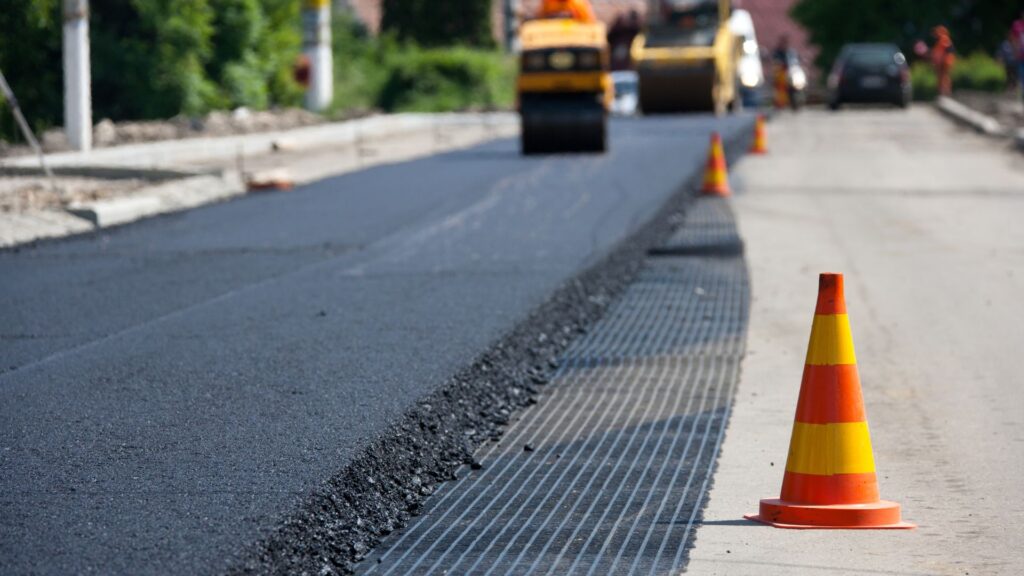
How Much Does Asphalt Cost Per Square Metre In NZ?
If you’re planning an asphalt project in New Zealand, one of the most important things to consider is the cost per square metre. Whether you’re paving a residential driveway, a commercial parking lot, or an industrial road, understanding the pricing structure can help you budget effectively and make an informed decision.
Current Price Range In New Zealand
The cost of asphalt per square metre in NZ typically ranges between $30 and $100, depending on various factors such as material quality, site preparation, and location. While this is a general estimate, your final cost will depend on the specific project requirements.
- Standard Residential Asphalt: Homeowners looking to pave a driveway can expect to pay between $30 and $60 per square metre for basic asphalt. This price usually includes the cost of materials, installation, and minor site preparation.
- Commercial & Parking Lots: Larger-scale commercial projects, such as parking lots or private roads, typically range from $50 to $80 per square metre, as they often require a thicker asphalt layer and additional reinforcement to support heavy vehicles.
- Industrial & Heavy-Duty Asphalt: High-traffic industrial areas, such as warehouses and highways, demand stronger asphalt mixes. These projects can cost $80 to $100 per square metre, depending on the required durability and additional base preparation work.
Cost Differences Between Residential, Commercial, And Industrial Asphalt Paving
The type of project significantly impacts the overall cost of asphalt. Here’s a closer look at the key differences:
- Residential Paving: Generally, homeowners require smaller, lighter-use asphalt surfaces, such as driveways or private access roads. Since these areas experience less wear and tear, they require less thickness and base preparation, making them more affordable.
- Commercial Paving: Businesses often need durable and high-traffic asphalt surfaces for parking areas, loading zones, or storefronts. These projects typically include better drainage systems, thicker asphalt layers, and additional seal coating, increasing the cost per square metre.
- Industrial Paving: For factories, logistics hubs, and highways, heavier-duty asphalt is necessary to withstand constant vehicle movement and extreme weight loads. The installation process for industrial asphalt usually involves multiple layers, stronger base reinforcement, and more expensive materials, making it the most costly option.
Pricing Variations By Region In New Zealand
Where you’re located in New Zealand can also influence the cost of asphalt installation. Prices vary depending on transportation costs, climate conditions, and material availability.
North Island Vs. South Island – Factors Affecting Cost
- North Island: Due to a higher demand for asphalt in urban centers like Auckland and Wellington, costs can be slightly higher compared to other regions. However, the availability of local asphalt plants often helps keep prices relatively stable.
- South Island: Asphalt costs in the South Island can fluctuate more because of lower demand and fewer suppliers. In some remote areas, material transportation costs can add to the final price, making it slightly more expensive than in major North Island cities.
Urban Vs. Rural Areas – Impact Of Transport And Material Availability
- Urban Areas: Cities like Auckland, Wellington, and Christchurch generally offer more competitive pricing due to greater access to materials, multiple contractors, and higher project volume. Urban areas also benefit from shorter transportation distances, reducing additional costs.
- Rural Areas: If you’re located in a more remote region, expect higher costs due to limited contractor availability, longer transport distances, and potentially higher labor charges. Additionally, preparing rural land for asphalt paving may require extra excavation, drainage solutions, or reinforcement, increasing overall expenses.
The cost of asphalt per square metre in New Zealand varies based on project type, location, and required materials. Whether you’re a homeowner looking to pave your driveway or a business owner managing a large-scale parking lot project, understanding these factors can help you budget effectively and choose the right contractor for the job. To get the most accurate estimate, it’s always best to request multiple quotes from reputable asphalt providers in your area.
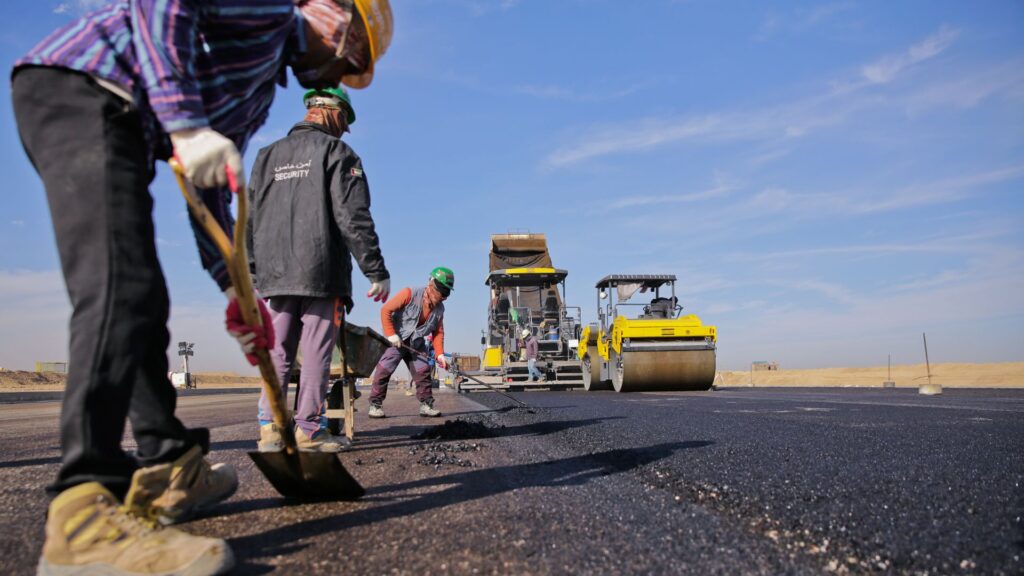
Factors That Influence Asphalt Pricing In New Zealand
When planning an asphalt paving project, understanding the factors that influence pricing can help you budget effectively and avoid unexpected costs. Asphalt prices in New Zealand vary due to several key elements, including material type, project size, site conditions, labour costs, and additional features. Below, we’ll break down each factor in detail to help you make an informed decision.
1. Type Of Asphalt Used: Standard Mix Vs. Premium Asphalt Options
The type of asphalt selected plays a significant role in determining the overall cost. In New Zealand, there are different asphalt mixes available, each designed for specific applications:
- Standard Mix Asphalt – This is the most common and affordable option used for residential driveways, pathways, and light-traffic areas. It provides durability but may require more maintenance over time.
- Premium Asphalt Options – High-performance asphalt, such as polymer-modified or heavy-duty mixes, is ideal for high-traffic roads, commercial parking lots, and industrial sites. These mixes offer greater durability and weather resistance but come at a higher cost.
Choosing the right asphalt type depends on the intended use and traffic load. While premium options may have a higher upfront cost, they can save money in the long run by reducing maintenance and repair needs.
2. Project Size: Bulk Pricing Benefits For Larger Areas
The total area being paved significantly impacts the cost per square metre. Generally, larger projects benefit from bulk pricing, as contractors can reduce material and labour costs when working on extensive areas.
- Small Driveways & Residential Projects – Typically cost more per square metre due to setup fees, transportation, and equipment mobilization.
- Larger Commercial & Public Projects – More cost-effective per square metre as bulk materials and extended labour hours lower the overall unit cost.
If you are paving a small area, consider combining multiple paving projects (e.g., driveways, pathways, and patio areas) to take advantage of volume discounts from contractors.
3. Base Preparation & Excavation: Site Preparation Costs
Before laying asphalt, proper base preparation is essential to ensure longevity and prevent premature cracking or sinking. The cost of site preparation depends on:
- Existing Surface Conditions – If the current surface is uneven or damaged, additional grading and leveling will be required.
- Excavation & Reinforcement – In some cases, old concrete or unstable soil needs to be removed and replaced with a strong base layer, which adds to the total cost.
- Drainage Considerations – Proper drainage is crucial to prevent water buildup that can weaken asphalt. Installing drainage solutions may increase costs but will extend the lifespan of the pavement.
A well-prepared base ensures durability, reduces the risk of future repairs, and provides a smooth, stable surface for the asphalt.
4. Labour & Installation Costs: DIY Vs. Professional Paving
Labour costs vary depending on the complexity of the project and whether you hire professionals or attempt a DIY approach.
- Hiring Professionals – While more expensive, professional asphalt contractors ensure proper installation, use high-quality materials, and follow industry best practices. This reduces the risk of early wear and costly future repairs.
- DIY Installation – Although DIY paving might seem like a cost-saving option, it requires specialized equipment, technical knowledge, and proper site preparation. Mistakes in installation can lead to cracks, drainage issues, and uneven surfaces, leading to higher long-term costs.
Additionally, seasonal demand affects labour costs. Peak construction seasons (spring and summer) tend to have higher pricing due to increased demand, while off-season projects may benefit from discounted rates.
5. Accessibility & Location: Transportation And Delivery Costs
Where your property is located plays a key role in asphalt pricing, mainly due to transportation and accessibility factors.
- Proximity To Asphalt Plants – If you are close to an asphalt production facility, material costs will be lower. Remote areas require additional transportation, increasing the overall price.
- Ease Of Site Access – If the project site is difficult to reach due to steep terrain, limited road access, or narrow driveways, additional equipment and labour may be required, raising costs.
To minimize transportation costs, it’s recommended to choose local contractors who source asphalt from nearby suppliers.
6. Additional Costs: Enhancements, Sealing, And Maintenance
Beyond the base cost of asphalt installation, additional features and long-term maintenance also affect the total project expense.
- Edging & Borders – Adding concrete or stone borders to define the asphalt area increases aesthetic appeal but also adds to the cost.
- Sealing & Protective Coatings – Applying a seal coat helps protect the asphalt from UV rays, water damage, and wear. Seal coating is recommended every 3-5 years and costs $5 to $10 per square metre.
- Decorative Finishes – Some homeowners opt for coloured or stamped asphalt to achieve a unique look, which comes at a premium price.
- Ongoing Maintenance – Regular maintenance, including crack filling, patching, and resurfacing, extends the lifespan of asphalt and prevents costly replacements.
Asphalt pricing in New Zealand depends on various factors, from material selection and project size to site preparation and accessibility. While it’s tempting to focus solely on the initial installation cost, investing in high-quality materials, proper site preparation, and professional installation can save money in the long run by reducing the need for frequent repairs.
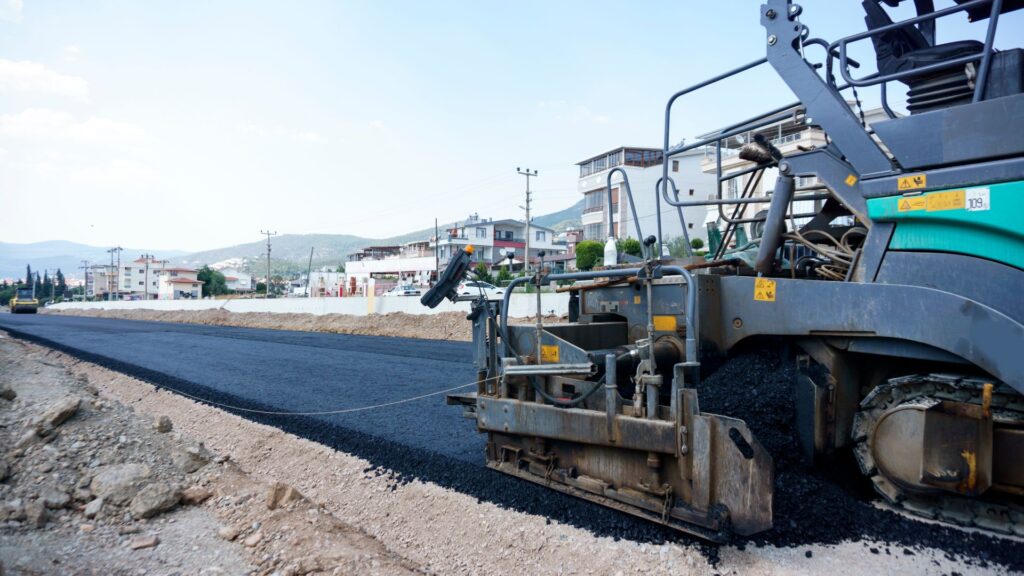
Cost Breakdown: Residential Driveways Vs. Commercial Paving
When planning an asphalt project in New Zealand, it’s important to understand the cost differences between residential driveways and commercial paving. The size, materials, preparation work, and regulatory requirements all influence the final price. Below, we break down the pricing, factors, and key considerations for both types of asphalt projects to help you make an informed decision.
Residential Driveway Costs
A well-paved asphalt driveway is a practical and cost-effective solution for homeowners in New Zealand. Asphalt provides a smooth, durable surface that enhances curb appeal while being more affordable than alternative materials like concrete or pavers.
Typical Cost for a Single-Car and Double-Car Driveway
The cost of installing a residential asphalt driveway depends on the size, base preparation, and location. On average:
- A single-car driveway (approximately 3 metres wide by 6 metres long) costs between $1,000 and $2,500.
- A double-car driveway (around 5 metres wide by 6 metres long) can range from $2,000 to $5,000.
These estimates include basic site preparation, asphalt laying, and finishing, but additional costs may apply if the terrain requires extensive grading, excavation, or drainage solutions.
Comparing Asphalt With Concrete And Pavers
Many homeowners weigh asphalt against concrete and pavers when choosing a driveway material.
- Asphalt is the most cost-effective option, with a lower upfront cost and faster installation time. It is flexible, meaning it resists cracking better than concrete but requires periodic sealing to maintain its durability.
- Concrete is more expensive but offers a longer lifespan and lower maintenance requirements. However, it can crack over time and is less resistant to extreme weather conditions.
- Pavers are the most expensive option but provide an attractive, customizable finish. They require regular maintenance to prevent weed growth and shifting.
If budget and ease of installation are priorities, asphalt is the best choice for most homeowners.
Expected Lifespan And Maintenance Considerations
A properly installed and maintained asphalt driveway can last between 15 and 30 years. To extend its lifespan, homeowners should:
- Sealcoat the driveway every three to five years to protect it from moisture and UV damage.
- Repair small cracks and potholes as soon as they appear to prevent further deterioration.
- Ensure proper drainage to prevent water pooling, which can weaken the asphalt surface.
While asphalt has a shorter lifespan than concrete, it remains a preferred choice due to its affordability, flexibility, and ease of repair.
Commercial Asphalt Pricing
Commercial asphalt paving covers larger-scale projects such as parking lots, roads, and industrial sites. Due to the extensive area coverage and durability requirements, commercial asphalt projects often have a different pricing structure than residential driveways.
Parking Lots, Roads, And Industrial Spaces – What To Expect
The cost of commercial asphalt paving varies based on factors such as traffic load, project size, material thickness, and drainage requirements.
- A small parking lot (between 500 and 1,000 square metres) may cost anywhere from $50,000 to $120,000.
- A medium-sized parking lot (between 1,000 and 5,000 square metres) could range from $120,000 to $400,000.
- Industrial roads and large-scale commercial spaces require custom pricing based on engineering specifications and expected traffic volume.
Since commercial asphalt must withstand heavy vehicles, high traffic, and environmental stress, projects often involve thicker asphalt layers, reinforced base preparation, and stricter construction standards to ensure long-term performance.
Why Large-Scale Projects Have Different Cost Structures
Unlike residential driveways, commercial asphalt paving involves higher costs due to:
- Material Requirements: Commercial asphalt typically has a thicker layer (between 50mm and 100mm) to withstand heavy loads.
- Heavy-Duty Equipment: Specialized machinery is used for large-scale paving and compaction.
- Extended Labour Costs: Larger crews and longer project durations contribute to higher overall costs.
- Additional Features: Line marking, pedestrian walkways, drainage solutions, and safety features add to the total expense.
Since commercial projects require compliance with engineering and safety standards, the overall cost per square metre is often higher than that of residential driveways.
Council Requirements And Compliance Costs
Commercial paving projects in NZ must adhere to local council regulations and national road safety standards. These can include:
- Permits and Inspections: Depending on the location and project size, permits may be required before construction begins.
- Drainage and Stormwater Management: Proper drainage systems must be in place to prevent flooding and structural damage.
- Accessibility and Safety Features: Commercial sites must comply with regulations for disability access, pedestrian crossings, and road markings.
Failing to meet these requirements can result in costly fines or the need for rework, so it’s essential to hire a reputable contractor who understands and follows local regulations.
Whether you’re planning a residential driveway or a commercial paving project, understanding the cost breakdown is crucial for budgeting and decision-making. While asphalt remains an affordable and durable solution, pricing varies based on project size, material quality, and compliance requirements. By getting multiple quotes, choosing high-quality materials, and maintaining your asphalt properly, you can maximize its lifespan and value.
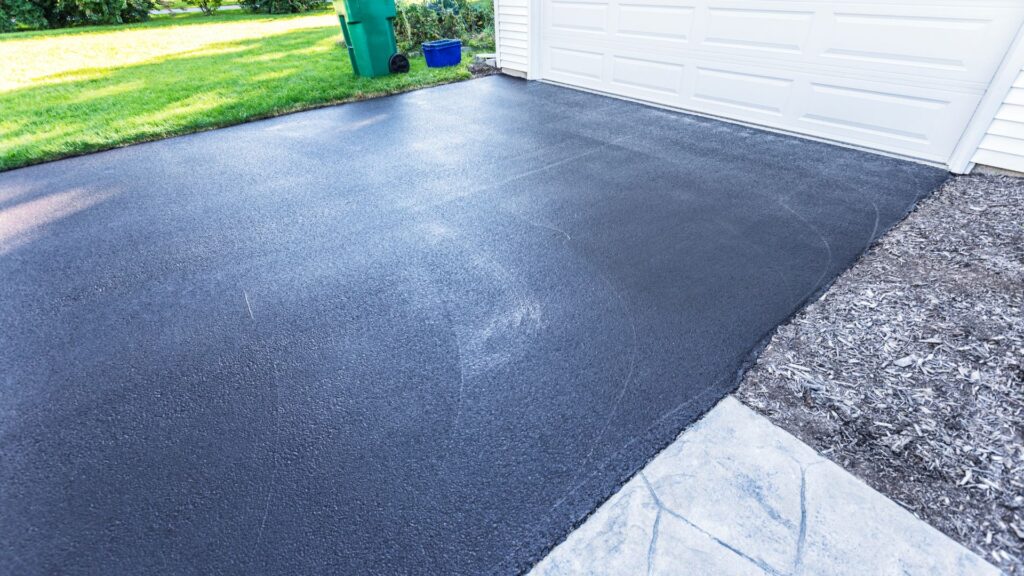
How To Get The Best Value For Your Money
Investing in asphalt paving is a significant decision, whether you’re upgrading a driveway, laying down a parking lot, or resurfacing a road. While cost is an essential factor, the goal should be to get the best value rather than simply choosing the cheapest option. Below are key strategies to ensure you make a smart, long-term investment in your asphalt project.
Get Multiple Quotes From Reputable Contractors
One of the best ways to ensure you’re getting a fair deal is to compare quotes from different asphalt contractors. However, it’s not just about the lowest price—you need to assess the quality of materials, experience, and overall service.
Here’s what to look for when comparing quotes:
- Detailed Breakdown: A professional contractor should provide a quote that includes material costs, labour, base preparation, and any additional fees.
- Experience & Reputation: Check online reviews, ask for references, and research their past projects to ensure they deliver quality work.
- Inclusions & Exclusions: Some quotes may seem cheaper because they exclude necessary steps like site preparation or sealing. Always clarify what’s included.
- Timeframe & Scheduling: Ask how long the project will take and whether delays could increase costs.
By comparing multiple quotes, you’ll get a better understanding of the average cost and ensure you’re not overpaying—or sacrificing quality for a lower price.
Choose Quality Materials To Avoid Frequent Repairs
The quality of the asphalt mix plays a significant role in the durability and lifespan of your pavement. While cheaper options might seem appealing upfront, they often lead to frequent cracks, potholes, and costly repairs down the line.
Here’s why material quality matters:
- Higher-Grade Asphalt Lasts Longer: Premium asphalt mixes withstand harsh weather, heavy loads, and high traffic better than lower-quality alternatives.
- Proper Thickness Prevents Early Damage: Thinner layers of asphalt may save money initially but can lead to cracking and wear much faster. Ensure your contractor follows industry thickness standards.
- Drainage & Base Material Are Critical: A solid, well-prepared base and proper drainage system can prevent water damage and premature deterioration.
Investing in high-quality materials means fewer repairs, a smoother surface, and a better return on investment in the long run.
Plan For Long-Term Maintenance To Extend Asphalt Lifespan
Even the best asphalt paving job requires regular maintenance to keep it in top shape. Many property owners overlook maintenance, only to find themselves dealing with avoidable cracks, potholes, or even full replacements.
Here’s how to maintain your asphalt and save money over time:
- Sealcoating: Applying a seal coat every 2-4 years protects asphalt from UV rays, water damage, and general wear.
- Prompt Crack Repairs: Small cracks can turn into major potholes if left untreated. Fixing them early prevents costly repairs.
- Regular Cleaning: Removing debris, dirt, and standing water can prevent surface deterioration and extend lifespan.
- Avoid Heavy Loads & Sharp Turns: Heavy vehicles and tight wheel turns can cause early damage, so consider traffic flow when designing your pavement.
A well-maintained asphalt surface can last 15-30 years, while neglected pavement may need costly resurfacing within a decade.
Ask About Warranties And Guarantees Before Committing To A Contractor
A warranty is a sign that a contractor is confident in their workmanship and materials. Before signing a contract, ask about warranty coverage and guarantees on the paving job.
Key questions to ask include:
- What Does The Warranty Cover? Look for guarantees on workmanship, materials, and any potential early damage like cracks or uneven surfaces.
- How Long Does The Warranty Last? Some contractors offer 1-year warranties, while high-quality providers may offer 5-10 years of coverage.
- What Voids The Warranty? Understand the conditions—some warranties won’t cover issues caused by lack of maintenance or environmental factors.
Choosing a contractor that stands behind their work gives you peace of mind and protects your investment from unexpected expenses.
Getting the best value for your money when investing in asphalt paving is about more than just finding the lowest price. By comparing quotes, choosing quality materials, planning for long-term maintenance, and ensuring warranty coverage, you can enjoy a durable, long-lasting surface that saves you money in the long run. Take the time to research, ask questions, and invest wisely, and your asphalt project will serve you well for years to come.
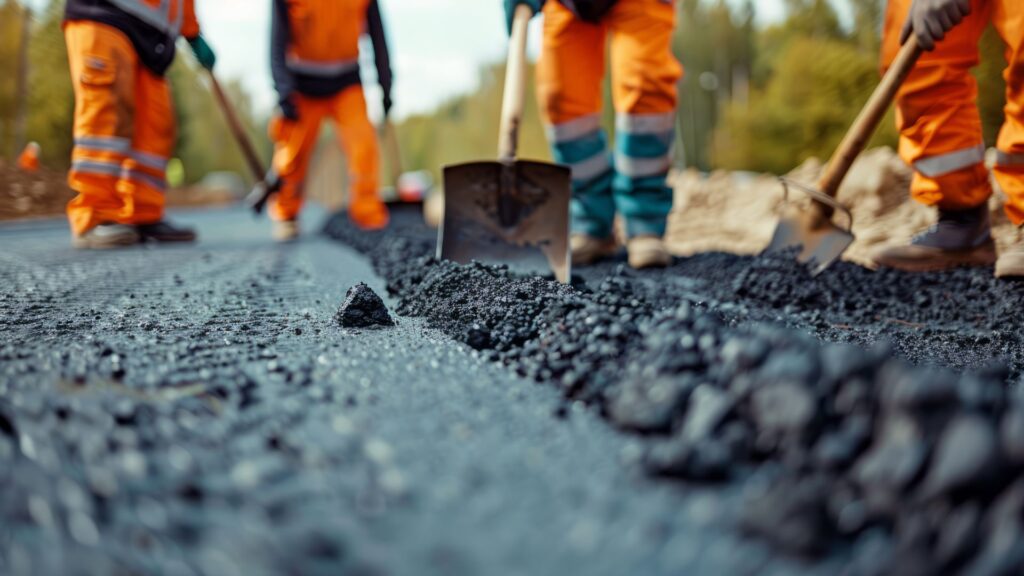
FAQs: About Asphalt Cost Per Square Metre NZ
The cost of asphalt in NZ typically ranges from $30 to $100 per square metre, depending on factors like location, project size, base preparation, and asphalt type. Residential driveways generally fall on the lower end, while commercial or high-traffic areas may cost more.
Several factors impact asphalt pricing, including material quality, site preparation, labour costs, accessibility, and additional features like edging or sealing. Transporting materials to remote areas can also increase costs.
Yes, in most cases, asphalt is more affordable than concrete, with lower upfront costs and quicker installation times. However, concrete has a longer lifespan and may require less maintenance over time.
A well-installed asphalt driveway can last 15 to 30 years, depending on maintenance, weather conditions, and traffic load. Regular sealing and repairs can help extend its lifespan.
Routine maintenance includes sealing ($5–$10 per square metre every few years) and minor crack repairs. Proper drainage and regular cleaning can also prevent costly repairs.
Yes, resurfacing is often a cost-effective alternative to full replacement if the base is still in good condition. Resurfacing costs less than full installation and can extend the driveway’s life by 10–15 years.
Yes, costs may differ based on local material availability, contractor pricing, and transportation costs. Urban areas usually have more competitive pricing, while rural locations may face higher costs due to transport and limited contractor options.
Asphalt typically sets within 24 to 48 hours, but it can take up to 30 days to fully cure. It’s best to avoid heavy loads during the first week to prevent damage.
Yes, recycled asphalt (RAP) and porous asphalt are available options that reduce environmental impact while maintaining durability. Ask your contractor about sustainable paving solutions.
To get an accurate quote, contact reputable asphalt contractors in your area and provide details about your project size, site conditions, and any additional features required. Comparing multiple quotes can help ensure you get the best value.
Conclusion
Understanding the asphalt cost per square metre in NZ is essential for making an informed decision when planning your driveway, parking lot, or commercial paving project. While prices typically range from $30 to $100 per square metre, several factors—such as material quality, site preparation, project size, and location—can influence the final cost. To stay within budget, it’s important to compare multiple quotes, choose a reputable contractor, and consider long-term maintenance costs to ensure durability and value for money. A well-installed asphalt surface can last 15 to 30 years, making it a cost-effective and durable solution for both residential and commercial use. When selecting a contractor, look for experience, customer reviews, and clear pricing to avoid unexpected expenses. If you’re ready to start your project, request a detailed quote from trusted asphalt professionals to get the best value and ensure a smooth, long-lasting finish.
About the Author:
Mike Veail is a recognized digital marketing expert with over 6 years of experience in helping tradespeople and small businesses thrive online. A former quantity surveyor, Mike combines deep industry knowledge with hands-on expertise in SEO and Google Ads. His marketing strategies are tailored to the specific needs of the trades sector, helping businesses increase visibility and generate more leads through proven, ethical methods.
Mike has successfully partnered with numerous companies, establishing a track record of delivering measurable results. His work has been featured across various platforms that showcase his expertise in lead generation and online marketing for the trades sector.
Learn more about Mike's experience and services at https://theleadguy.online or follow him on social media:

